¡¡ https://www.bing.com/search?q=Nature+Briefing&cvid=165ee20709f045ebb09c8fed0d887573&aqs=edge..69i57j69i59i450l8...8&FORM=ANCMS9&PC=U531,... -- C.- : naturaleza explorar artículos Sesión informativa sobre la naturaleza
XXX.- :
Sostenibilidad en Amazon - Libros a precios bajos
AnuncioEnvío gratis en libros desde 19 €
Prueba Prime gratis · Lee opiniones de clients · Nuevas ofertas cada día
CUADERNO DE SOSTENIBILIDAD Y SOCIEDAD (*) - Blogger
cuaderno de sostenibilidad y sociedad, sostenibilidad de la humanidad, segunda ediciÓn ¡¡ >> una guÍa de teorÍa prolets polÍtica de socialismo cientifico prolets, de "comunismo proletario
File:Cuaderno de Sostenibilidad y Sociedad.pdf
File:Cuaderno de Sostenibilidad y Sociedad.pdf. From Wikimedia Commons, the free media repository. Jump to navigation Jump to search. File; File history; File usage on Commons; Metadata; Size of this JPG preview of this PDF file: 423 × …
Archivo:Cuaderno de Sostenibilidad y Sociedad.pdf
Cuaderno de Comercio y Sostenibilidad
| |||||
| |||||
Hello Nature readers, | |||||
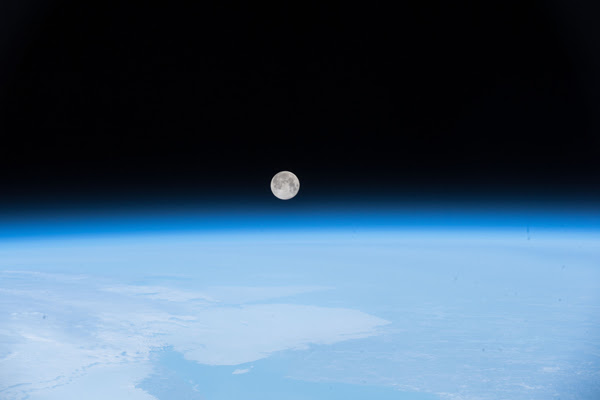 | |||||
| Danuri will use multiple scientific instruments to probe properties of the Moon. (Credit: NASA) | |||||
South Korea excited for first Moon missionBy this time next week, South Korea’s first lunar probe will be on its way to the Moon. The probe, named Danuri, which means ‘enjoy the Moon’, should arrive at its destination by mid-December and orbit for a year. Researchers hope that the craft will find hidden sources of water and ice and shed light on the Moon’s ancient magnetism as well as the ‘fairy castles’ of dust sprinkled across its surface. “Everybody is so happy and excited,” says planetary geoscientist Kyeong-ja Kim. Nature | 5 min read | |||||
AI predicts shape of nearly every proteinDetermining the 3D shape of almost any protein known to science will soon be as simple as typing in a Google search. Researchers have used the revolutionary artificial-intelligence (AI) network AlphaFold to predict the structures of some 200 million proteins from one million species, covering nearly every known protein on the planet. The data will be uploaded to a free database. “It’s going to be an awesome resource,” says computational biologist Eduard Porta Pardo. Nature | 5 min read | |||||
Fossil-fuel emissions hamper carbon datingThe burning of fossil fuels has officially shifted the composition of carbon isotopes in the air of the Northern Hemisphere enough to cancel out a useful signal from nuclear-weapons testing. This could cause a headache for archaeologists, because modern items now look like objects from the early twentieth century in terms of radiocarbon dating. The development means that forensic scientists will no longer be able to use radiocarbon fingerprints to pinpoint the ages of materials such as ivory, antiques and wine. “If you’re working in forensics or detecting fakes, this is a really sad moment,” says archaeologist Tom Higham. Nature | 5 min read | |||||
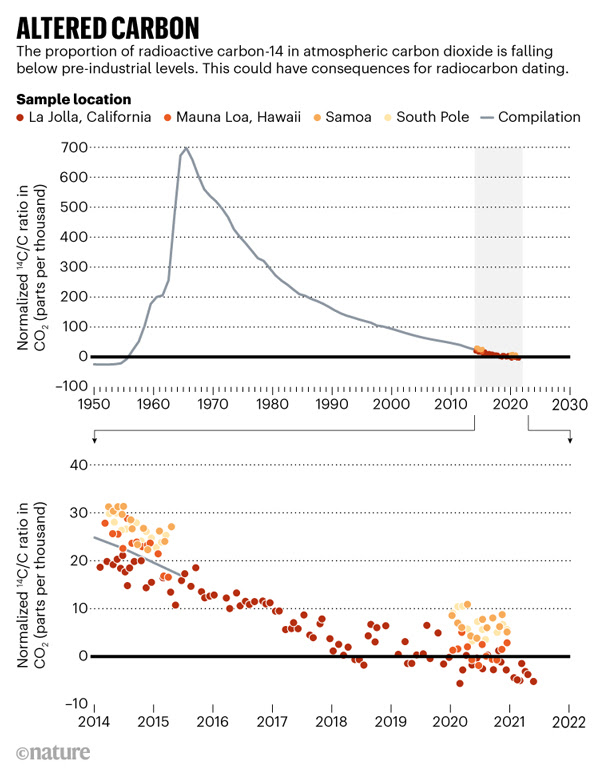 | |||||
| Source: Nature correspondence (Source: H. Graven et al./Nature) | |||||
| |||||
James Lovelock: scientist and green thinkerBritish scientist James Lovelock, whose work inspired the green movement and underpins much of modern climate science, died on his 103rd birthday. His research spanned many disciplines, but he is perhaps best known for his 1960s Gaia theory, which described Earth as one huge interconnected, self-regulating system rather than a passive host to living species — an idea that was controversial among some evolutionary scientists. Lovelock highlighted some of the greatest environmental concerns of our time, including damage to the ozone layer and climate change. The Guardian | 10 min read | |||||
Raising a glass to glasswareGlass has played an important part throughout the history of science — from test tubes and Petri dishes to telescope lenses and microscope slides — but it holds a special significance for chemists, with whom most people still associate the image of glassware containing brightly coloured solutions. In celebration of the United Nations International Year of Glass, chemist Michelle Francl explores how glass has revolutionized the field. Nature Chemistry | 7 min read | |||||
Futures: In the darkA couple must decide whether to submit to humanity’s alien overlords in the latest short story for Nature’s Futures series. Nature | 6 min read | |||||
Podcast: How we became lactose tolerantHumans have been drinking milk for thousands of years, long before the ability to digest it became widespread. Now, researchers think they know why: lactose tolerance was beneficial enough to influence evolution only during occasional episodes of famine and disease, explaining why it took thousands of years for the trait to become prevalent in Europe. Nature Podcast | 28 min listenRead more: How humans’ ability to digest milk evolved from famine and disease (Nature | 5 min read) Subscribe to the Nature Podcast on Apple Podcasts, Google Podcasts or Spotify. | |||||
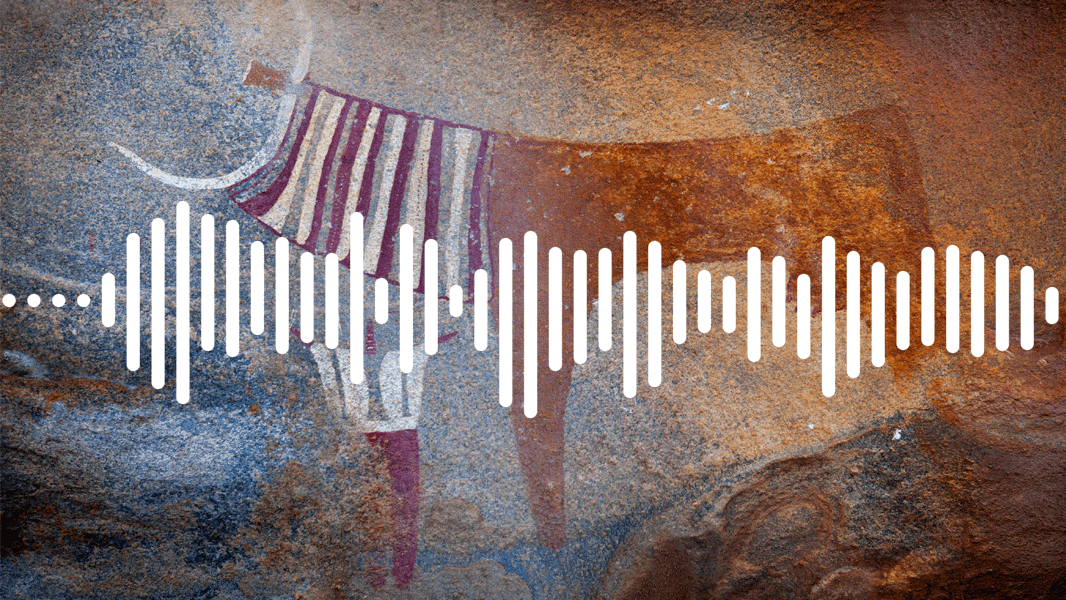 | |||||
| |||||
| |||||
You received this newsletter because you subscribed with the email address: lukymlg@gmail.com Please add briefing@nature.com to your address book. Enjoying this newsletter? You can use this form to recommend it to a friend or colleague — thank you! Want to switch to the weekly edition or change your email address? Update your preferences. Had enough? Unsubscribe from the Nature Briefing. Fancy a bit of a read? View our privacy policy. Forwarded by a friend? Get the Briefing straight to your inbox: subscribe for free. Want to master time management, protect your mental health and brush up on your skills? Sign up for our free short e-mail series for working scientists, Back to the lab. Get more from Nature: Register for free on nature.com to sign up for other newsletters specific to your field and email alerts from Nature Research journals. Would you like to read the Briefing in other languages? 关注Nature Portfolio官方微信订阅号,每周二为您推送Nature Briefing精选中文内容——自然每周简报。 Nature | The Springer Nature Campus, 4 Crinan Street, London, N1 9XW, United Kingdom Nature Research, part of Springer Nature. |
A.- : AI predicts the shape of nearly every known protein
| |||||
| |||||
Hello Nature readers, | |||||
 | |||||
| Danuri will use multiple scientific instruments to probe properties of the Moon. (Credit: NASA) | |||||
South Korea excited for first Moon missionBy this time next week, South Korea’s first lunar probe will be on its way to the Moon. The probe, named Danuri, which means ‘enjoy the Moon’, should arrive at its destination by mid-December and orbit for a year. Researchers hope that the craft will find hidden sources of water and ice and shed light on the Moon’s ancient magnetism as well as the ‘fairy castles’ of dust sprinkled across its surface. “Everybody is so happy and excited,” says planetary geoscientist Kyeong-ja Kim. Nature | 5 min read | |||||
AI predicts shape of nearly every proteinDetermining the 3D shape of almost any protein known to science will soon be as simple as typing in a Google search. Researchers have used the revolutionary artificial-intelligence (AI) network AlphaFold to predict the structures of some 200 million proteins from one million species, covering nearly every known protein on the planet. The data will be uploaded to a free database. “It’s going to be an awesome resource,” says computational biologist Eduard Porta Pardo. Nature | 5 min read | |||||
Fossil-fuel emissions hamper carbon datingThe burning of fossil fuels has officially shifted the composition of carbon isotopes in the air of the Northern Hemisphere enough to cancel out a useful signal from nuclear-weapons testing. This could cause a headache for archaeologists, because modern items now look like objects from the early twentieth century in terms of radiocarbon dating. The development means that forensic scientists will no longer be able to use radiocarbon fingerprints to pinpoint the ages of materials such as ivory, antiques and wine. “If you’re working in forensics or detecting fakes, this is a really sad moment,” says archaeologist Tom Higham. Nature | 5 min read | |||||
 | |||||
| Source: Nature correspondence (Source: H. Graven et al./Nature) | |||||
| |||||
James Lovelock: scientist and green thinkerBritish scientist James Lovelock, whose work inspired the green movement and underpins much of modern climate science, died on his 103rd birthday. His research spanned many disciplines, but he is perhaps best known for his 1960s Gaia theory, which described Earth as one huge interconnected, self-regulating system rather than a passive host to living species — an idea that was controversial among some evolutionary scientists. Lovelock highlighted some of the greatest environmental concerns of our time, including damage to the ozone layer and climate change. The Guardian | 10 min read | |||||
Raising a glass to glasswareGlass has played an important part throughout the history of science — from test tubes and Petri dishes to telescope lenses and microscope slides — but it holds a special significance for chemists, with whom most people still associate the image of glassware containing brightly coloured solutions. In celebration of the United Nations International Year of Glass, chemist Michelle Francl explores how glass has revolutionized the field. Nature Chemistry | 7 min read | |||||
Futures: In the darkA couple must decide whether to submit to humanity’s alien overlords in the latest short story for Nature’s Futures series. Nature | 6 min read | |||||
Podcast: How we became lactose tolerantHumans have been drinking milk for thousands of years, long before the ability to digest it became widespread. Now, researchers think they know why: lactose tolerance was beneficial enough to influence evolution only during occasional episodes of famine and disease, explaining why it took thousands of years for the trait to become prevalent in Europe. Nature Podcast | 28 min listenRead more: How humans’ ability to digest milk evolved from famine and disease (Nature | 5 min read) Subscribe to the Nature Podcast on Apple Podcasts, Google Podcasts or Spotify. | |||||
 | |||||
| |||||
| |||||
You received this newsletter because you subscribed with the email address: lukymlg@gmail.com Please add briefing@nature.com to your address book. Enjoying this newsletter? You can use this form to recommend it to a friend or colleague — thank you! Want to switch to the weekly edition or change your email address? Update your preferences. Had enough? Unsubscribe from the Nature Briefing. Fancy a bit of a read? View our privacy policy. Forwarded by a friend? Get the Briefing straight to your inbox: subscribe for free. Want to master time management, protect your mental health and brush up on your skills? Sign up for our free short e-mail series for working scientists, Back to the lab. Get more from Nature: Register for free on nature.com to sign up for other newsletters specific to your field and email alerts from Nature Research journals. Would you like to read the Briefing in other languages? 关注Nature Portfolio官方微信订阅号,每周二为您推送Nature Briefing精选中文内容——自然每周简报。 Nature | The Springer Nature Campus, 4 Crinan Street, London, N1 9XW, United Kingdom Nature Research, part of Springer Nature. |
B.- :
Nature
Home – Nature Briefing
Daily briefing: Why get two PhDs - nature.com
Nature briefing - Vicerrectorado de Investigación
C.- :
Sesión informativa sobre la naturaleza
Filter By:
- ¡¡ untitled (wikimedia.org) ¡¡
- REBALAE/LITORAL MAGALEÑO DEL ALBORÁN,...¡¡
- PLAYAS DEL SAN ANDRES,
- LA MISERICORDIA,...¡¡. MI SEGUNDA KAI",...¡¡.



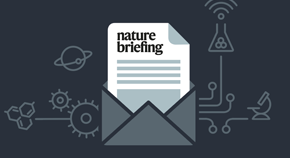
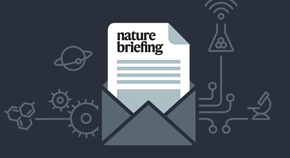
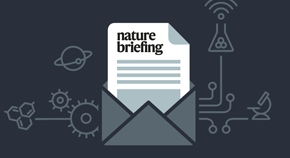
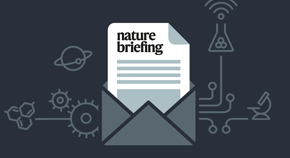

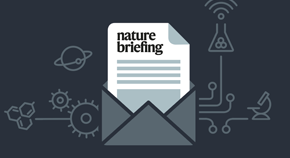

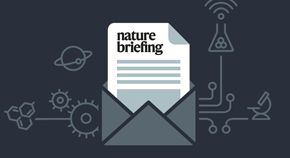
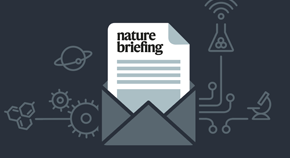
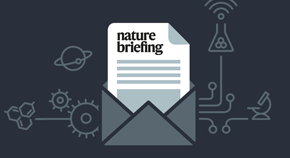
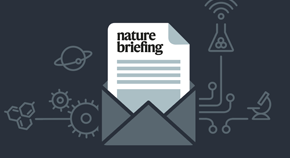
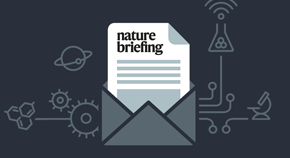
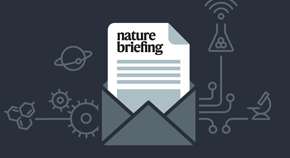

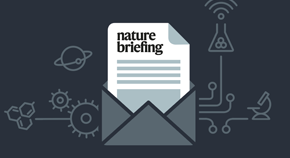
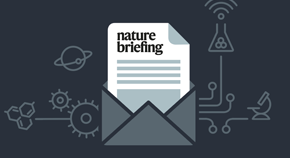
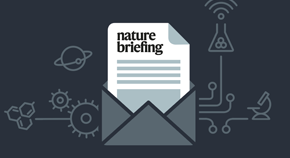
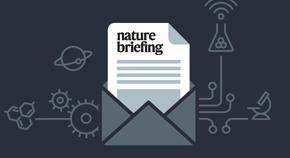
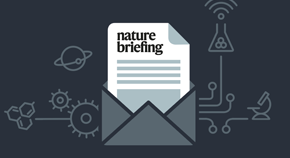
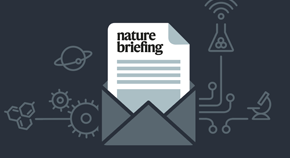





Comentarios
Publicar un comentario